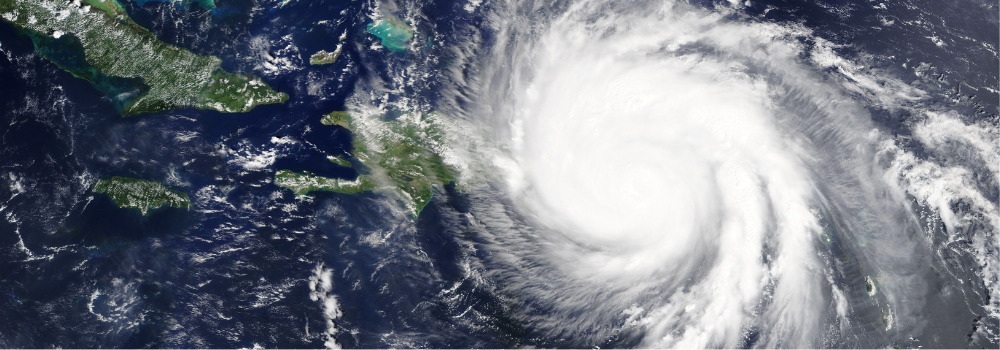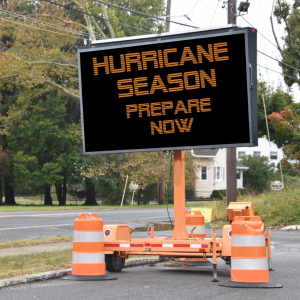
The 2025 Atlantic Hurricane season begins Sunday, June 1, and forecasters are predicting another turbulent year. Communities across the continental United States and the Caribbean will be bracing for above average hurricane activity in the Atlantic basin this year.
These predictions follow the record-breaking and devastating 2024 season. Hurricane Beryl, which was fueled by exceptionally high ocean temperatures, swept across parts of the Caribbean and Gulf Coast of the U.S. in July of 2024, making it the earliest category 5 Atlantic hurricane in records dating back a century. Hurricane Helene brought catastrophic storm surge, historic flooding, landslides, and fierce winds and tornadoes from Big Bend Florida all the way to mountain towns of Tennessee and North Carolina. The storm and its aftermath killed at least 250 people, making it the deadliest hurricane in the contiguous U.S. since Hurricane Katrina in 2005. And less than a month later, Hurricane Milton, one of the strongest Atlantic hurricanes in history, pummeled some of the same communities in Southwest Florida.
Beryl, Helene, and Milton were so deadly and destructive that the World Meteorological Organization retired their names.

As the 2025 season gets underway, forecasters with the National Oceanic and Atmospheric Administration are predicting between 13 and 19 named storms, with the potential for six to 10 hurricanes, and three to five major hurricanes among them.
Conditions are primed to make these storms especially devastating. Sea surface temperatures in the Gulf of Mexico and Caribbean Sea are well above average, which can supercharge already large storms, making them even stronger and more dangerous prior to landfall.
And across the nation, many communities are heading into the 2025 Hurricane Season without adequate forecasting capacity. Recent cuts to federal staff have left many National Weather Service offices with skeleton crews, including the Tampa office, which was hit hard by Hurricane Milton in 2024, and the Houston Office, which suffered severe flooding during Hurricane Harvey in 2017. The emergency management system is also overstretched and understaffed, and the Federal Emergency Management Agency has acknowledged internally that it is “not ready” for what is likely ahead.
As we enter the 2025 Atlantic Hurricane Season, we want to do our part to share resources that can help with the preparation, response, and recovery. Please keep reading to learn more.
Hurricane-Related Publications
With funding from federal agencies, the Natural Hazards Center has supported more than 100 research projects to investigate hurricanes, typhoons, cyclones, and other disasters across the country and the rest of the world. Please visit this page for reports, data publications, and other resources that demonstrate lessons learned from four decades of historic hurricanes, with insights on impacts, warnings and evacuation, recovery, and much more. The publications offer important findings and specific recommendations that can be applied to reduce current suffering and future harm. We hope the approaches and findings from this prior work can be used to inform the research response and recovery from future hurricanes.
Quick Response Research Awards
Should a major event occur, the National Science Foundation-funded Quick Response Award Program provides training and funds for researchers to quickly collect perishable data following disasters and other extreme events. Available funds administered through the Natural Hazards Center will support awards up to $5,000 each.
CONVERGE Resources
The CONVERGE Training Modules and Extreme Events Research Check Sheets can help cultivate the skills and understanding needed to conduct ethical and culturally competent disaster research. Trainings are geared toward understanding the emotional challenges of such research, collecting perishable data, working with socially vulnerable populations, engaging in reciprocal research partnerships, and several other relevant topics.
SSEER Network
The Social Science Extreme Events Research Network—or SSEER—is a global network of social scientists who study hazards and disasters. Please visit the SSEER map to identify locally-affected researchers and social scientists who study topics relevant to this disaster such as the human effects of hurricanes, evacuation behavior, warnings, and health outcomes.